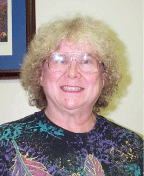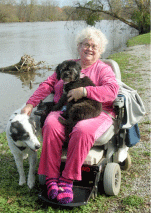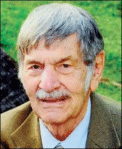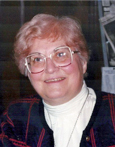
Janet Bowering
The Reverend Dr. Janet “Jan” Bowering, parish minister, religious educator, UU historian, peace and justice activist, devoted minister’s wife, loving mother and grandmother, doll collector, and world traveler, died peacefully on July 17, 2014, surrounded by her family, at the Merrimack Valley Hospice House, in Haverhill, MA; she was 83 years old.
The Rev. Ms. Bowering served congregations in the roles of part-time and full-time minister, and religious education director. For more than a decade, she set aside her own calling and offered her professional skills as a volunteer in her husband’s congregations and within groups serving the larger UU movement. She was passionate about religious education and actively ministered to young people in her own congregations and in the larger UU movement. With her husband and children, she spent many summers at UU camps and institutes, directing work projects and leading youth programs. Equally committed to her community, she worked to establish both a temporary shelter for the homeless and a program to provide a food kitchen for the hungry. Another of her passions was to see new places, and she made use of her vacation and sabbatical time to travel the world.
Janet found particular inspiration in the life and pioneering work of the Rev. Olympia Brown. She was known far and wide for her dramatic portrayal of Olympia Brown’s life and ideas, a presentation that she offered more than forty times. (At the time of this writing, a video record of one such performance was available at https://www.youtube.com/watch?v=1guc91OFx8w).
Ms. Bowering was also a mentor to seminarians. The Rev. Holly Baylies, who served an internship at the Haverhill UU Church in 1990, recalls that Jan “taught me the truth about ministry, which was not to be found in the books I had read or the courses taken, but within the mere joy and optimism she expressed in the living of her life, in her service to others. No matter whom she encountered and how grumpy, annoying or difficult the person or circumstance may have been, she always found the right words and somehow, the beauty inherent in each and every individual she encountered. Her sense of the worth and dignity of every person was at the core of her teachings and her living.” Janet summarized this attitude in her conviction that “The church is people. It is not a body of belief, a set of principles, or an impressive structure of stone, wood, and glass.”
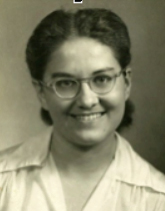
Janet Bowering
Janet Hartzell was born on December 7, 1930, the only child of Allen Reiff Hartzell and Catharine May Weiser. She was a shy, artistic youngster who loved pets and other animals. With her father, she enjoyed gardening, growing food for the family, and composting. Influenced perhaps by her father, a chemistry professor at St. Lawrence University, Janet developed an interest in science. She created her own experiments, including one which nearly led to the accidental burning of her house. In her late teen years, she came under the mentoring influence of the Rev. Edna Bruner, who served the First Universalist Church, Canton, NY, from 1945 to 1950.
The summer after her high school graduation, Janet’s mother died suddenly; her father died nine months later.
While attending college, Janet felt a call to ministry. She earned a B.A. from St. Lawrence University in 1952 and continued on to seminary, where her future husband, Vinton Bowering, was a year ahead of her. Another classmate, David Pohl, recalls, “While the University had about 1,800 students, the theological school was a small community of about forty. It was inevitable then that Vin and Janet would meet there, [forming a relationship] that [eventually] became a marriage.” In 1953 Vinton completed his B.D from St. Lawrence Theological School and Janet, having studied with Angus MacLean, received the School’s certification as a religious educator. Jan and Vin were married at the First Universalist Church, Canton, New York, on September 5, 1953. After a short honeymoon, they moved to Abington, Mass, where Vinton had been called to the local Universalist congregation (now defunct). Janet continued her studies at Boston University, because, in her words, “Harvard Divinity School had not yet grasped the idea of educating women for the ministry!” The next year Vinton was called to the Outlaw’s Bridge Universalist Church, Seven Springs, North Carolina, where he and Janet were both ordained to the Universalist ministry on January 30, 1955, by the North Carolina Universalist Convention. Shortly thereafter, Janet began serving as part-time minister of the smaller, nearby Universalist Church of Kinston, NC.
The Bowerings’ time in the South, during some of the first steps toward racial desegregation, presented challenges that they readily accepted. In her ministerial odyssey, recalled:
“. . . one time we [Janet and Vinton] took the Seven Springs LRY group [Liberal Religious Youth] to hear [journalist and integration activist] Harry Golden speak in Kinston. We didn’t know, or we would have prepared the kids for non-segregated seating. Fortunately we arrived late, were ushered in to a lecture in progress and sat hastily wherever we could. Afterward we stopped for ice cream, two cars full of young people, and tried to sort out feelings. It was interesting that they mainly didn’t want their parents to know what happened lest they jeopardize their chances to “go places and do things with Mr. and Mrs. Bowrin’.”
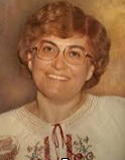
Janet Bowering
The Rev. Ms. Bowering left the Kinston church in 1959, when Vinton was called to First Parish in Milford, Massachusetts. During this ministry and Vinton’s subsequent call to the First UU Society of Exeter, New Hampshire, in 1967, Janet turned her attention to an active, though unpaid, role assisting her husband in church growth, working in the church school, and preaching when Vinton was away. In this “sabbatical” from her own career, she and Vinton began raising their own children, and Janet worked as a substitute teacher in area schools. Shortly after her husband’s call to the Universalist Unitarian Church of Haverhill, Mass, in 1974, Janet was hired to serve alongside him as the Director of Religious Education; she continued in that position, while also serving as part-time minister at First Parish of Tyngsborough, Mass (1977-79).
In 1979, when the Rev. Vinton Bowering suffered a fatal heart attack, the Haverhill congregation received special permission to bypass a search process and call Janet as their minister. She entered upon that role while caring for her three children as a single parent, serving for seventeen years until her retirement in 1996, when she was named Minister Emerita. In 1997, the Rev. Ms. Bowering served briefly as a visiting minister at Adelaide’s Unitarian Church of South Australia. Her lifelong commitments to the UU movement were honored by Meadville Lombard Theological School with a D.D. in 1998.
Janet Bowering’s ministering reached far beyond the congregations she served, both locally and globally. In 1977 she offered use of the church to the Calvary Baptist Church of Haverhill, MA, after that church had suffered a devastating fire. She later offered her church basement as a shelter for the homeless, a service remaining in place for three years. One Christmas Eve, Janet hand made the candles for the service from wax she had scraped off the pavement during a trip to Warsaw during the Polish uprisings, at great risk to her own safety. In the year following her retirement, she joined a Justice Works team helping to rebuild burned out churches in the southern United States and was credited with single-handedly digging a sewer line for a project in Summerton, South Carolina.
The Rev. Holly Baylies recalls that Jan’s “sense of social justice was strong, unflappable, and at times even comical, as this diminutive, white haired, little old lady, once packed a suitcase full of condoms to take to Romania to protest the lack of birth control practices. Detained by Romanian customs, she somehow managed to keep out of jail by convincing the authorities that she was a harmless minister, and was just following her conscience. Surprisingly, they let her go, condoms and all.”
Ms. Bowering was active in many UU organizations and activities. Prior to Unitarian and Universalist consolidation, she chaired the Camps Study and Evaluation Committee, a joint effort of Universalist and Unitarian women’s groups. She served the Mass Bay Chapter of the UUMA as senior Good Offices team member, Nominating Committee member, and Fall Conference planning committee member; the UU Historical Society as board member and president; the UU Society for Ministerial Relief as First Vice President; the Church of the Larger Fellowship as board member and executive committee member; the UU Women’s Heritage Society as President; and the Continental Board of the UU Women’s Federation. She was the first female member of the ministerial study group, The Fraters of the Wayside Inn, and also held membership with the Cedar Hill Study Group, the Unitarian Universalist Retired Ministers and Partners Association, and the UUA Professional Support Services Committee. She enthusiastically supported and promoted the Clara Barton Camp for over fifty years and served as chair of the Clara Barton Birthplace Committee.
Janet valued her Universalist roots, and found it important to preserve the Universalist legacy. She served the Board of the Universalist Heritage Foundation, the Massachusetts Association of Universalist Women, and the Massachusetts Universalist Convention.
An avid traveler, Janet loved to explore new places and meet new people. She collected foreign dolls, purchased during her travels and given to her by friends and family; Jan could tell the story of each of the more than 100 dolls in the collection, explaining the doll’s origin, its unique meaning, and the reason it had been selected. Jan was also an amateur potter, painter, and naturalist; and she relished time spent with her family at their summer house in rural Maine.
Jan’s family remembers her as “extremely inquisitive,” and “very practical.” One of her daughters, Diana Bowering, describes how her mother was quick to take action upon hearing of a problem, and lived with a mentality of “let’s not talk about it, let’s get down there and do something about it.” Jan was known as extremely hard working and “wasn’t one to sit around.” Diana reports that even after her mother had been hospitalized and was suffering from a wandering mind, Jan said of the hospital stay, “In theory, I don’t think this is the best use of my time.”
Holly Baylies offered these words at Janet’s memorial service: “I could never get over Jan’s bubbly and joyful outlook as she faced each new day, with that indomitable smile that never faded, looking for the good to be found, no matter what she might be facing. I was always in awe of her ability to rush into each day as if was a treat to be alive, and her ability to hold onto all that was good, always truly seeking out the best in people.”
Jan’s surviving family members include children, Dawn Jordan, Diana Bowering, and Alan Bowering, granddaughter, Laura Morley, and great-grandson, William Morley.
A memorial gathering was held on 26 July 2014 in Haverhill. A Celebration of Life took place on 20 September 2014 at the UU Church of Haverhill. A marvelous collection of photos of Janet may be seen at http://driscollfuneralhome.tributes.com/obituary/photos/Rev.-Janet-H.-Bowering-101528418.
Memorial donations are encouraged to The Clara Barton Camp, P.O. Box 356 North Oxford, MA 01537 (www.bartoncenter.org); Ferry Beach Park Association, 5 Morris Avenue, Saco, ME 04072 (www.ferrybeach.org); or Merrimack Valley Hospice of Home Health Foundation, Attn: Tammy Stott, 360 Merrimack Street, Building 9, Lawrence, MA 01843 (www.homehealthfoundation.org).
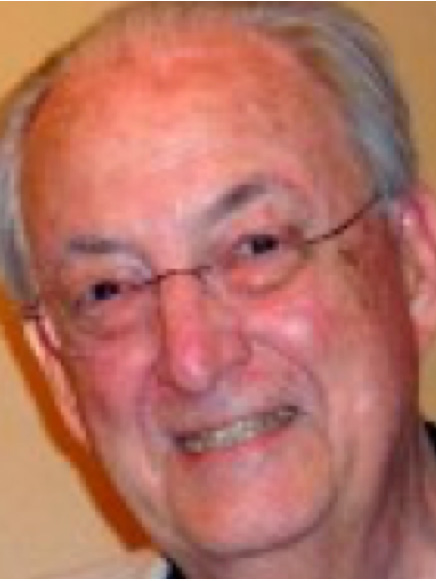

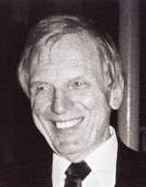
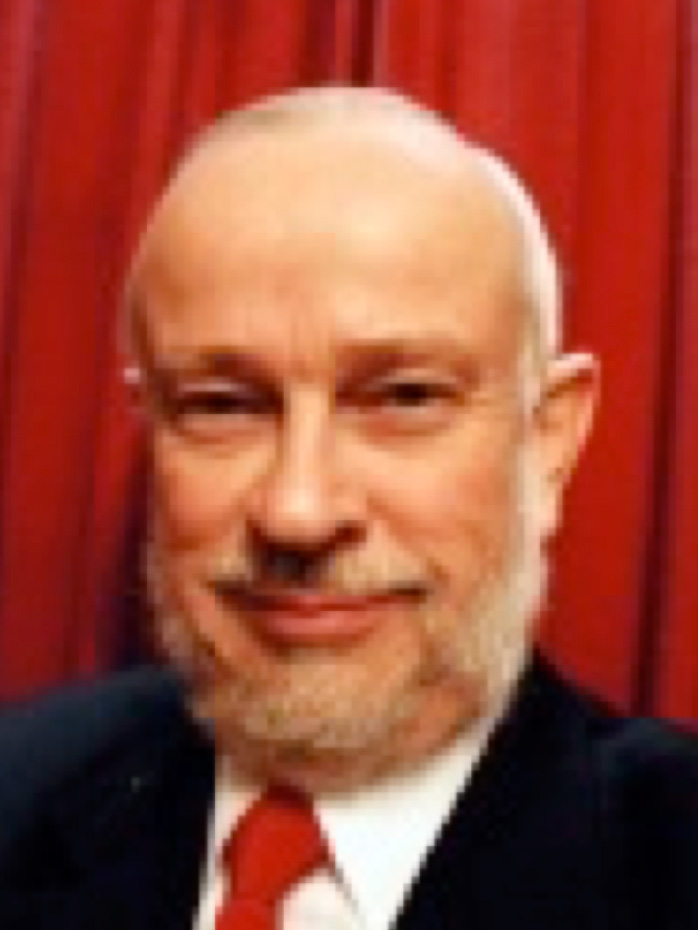



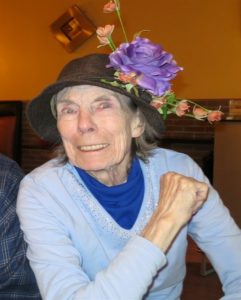
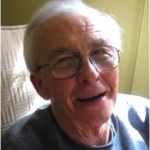
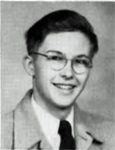
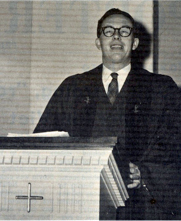
 Elizabeth “Betty” G. Haskell, widow of the Rev. Grant F. Haskell, died March 6, 2014 in Brooklyn, NY at the age of 91.
Elizabeth “Betty” G. Haskell, widow of the Rev. Grant F. Haskell, died March 6, 2014 in Brooklyn, NY at the age of 91.